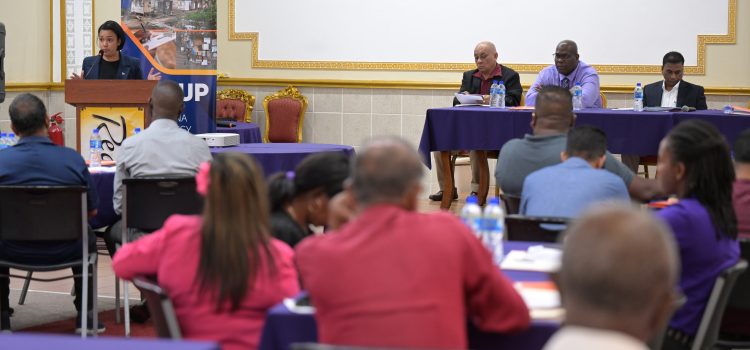In an effort to address the issue of squatting in Guyana, the government is actively working on the Guyana Strategy for Informal Settlement Upgrading and Prevention (GSISUP).
The strategy is being developed by the Ministry of Housing and Water’s Central Housing and Planning Authority (CH&PA) in collaboration with the UN-Habitat and other stakeholders. Today, the CH&PA hosted a validation workshop to engage stakeholders in discussions about the strategy.
Key figures at the workshop included Minister of Housing and Water, Hon. Collin Croal; Minister within the Ministry, Hon. Susan Rodrigues; Permanent Secretary, Mr. Bishram Kuppen; Chief Executive Officer of CH&PA, Mr. Sherwyn Greaves; and Community Development Director, Mr. Gladwin Charles. Additionally, Senior Informal Settlement Upgrading Expert, Mr. Michel Frojmovic, was also present and delivered a presentation on the current status of the strategy.
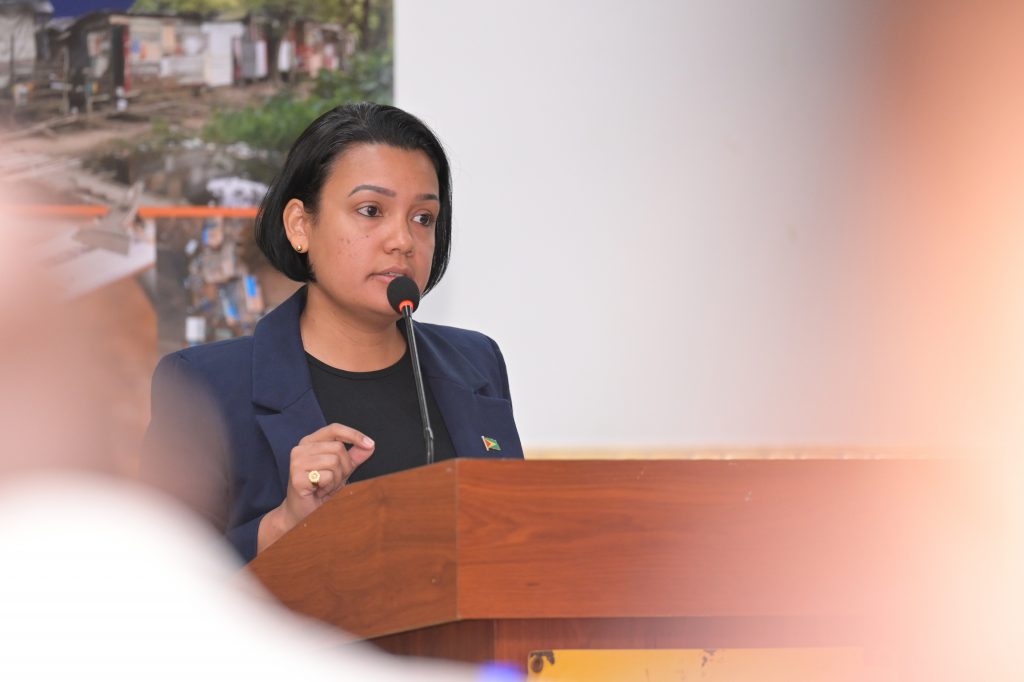
Minister Rodrigues emphasized the importance of the strategy in addressing squatting and its role in developing strategic priorities, actionable policies, and a focus on prevention and containment. She also highlighted the government’s ongoing efforts to regularise and relocate informal settlers in various areas through the National Squatter Regularisation and Relocation Programme, which has been in place since the 1990s.
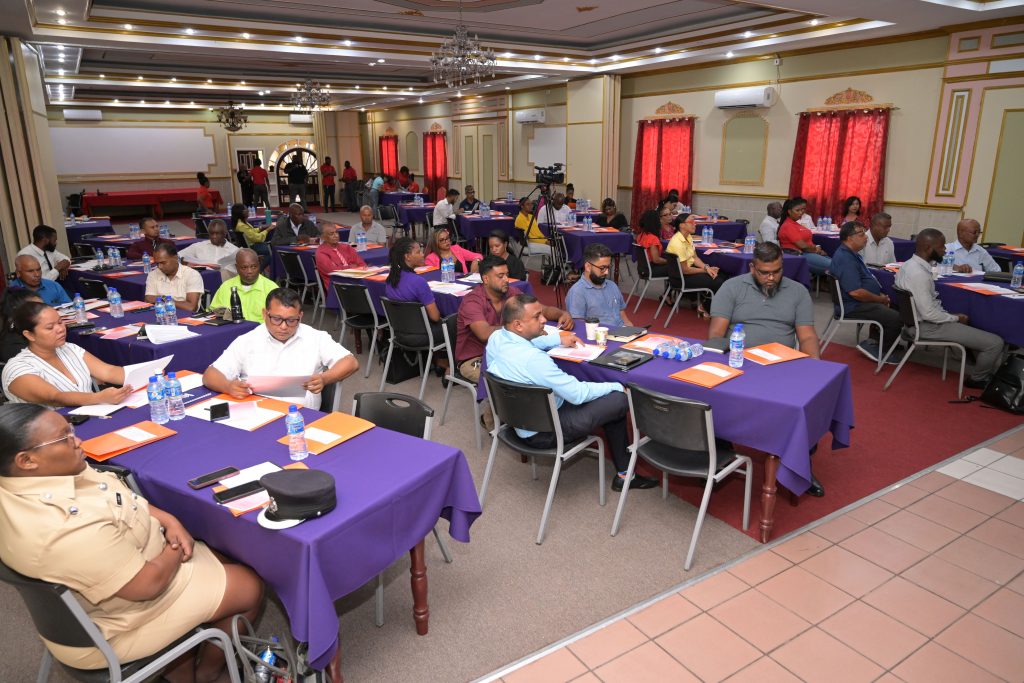
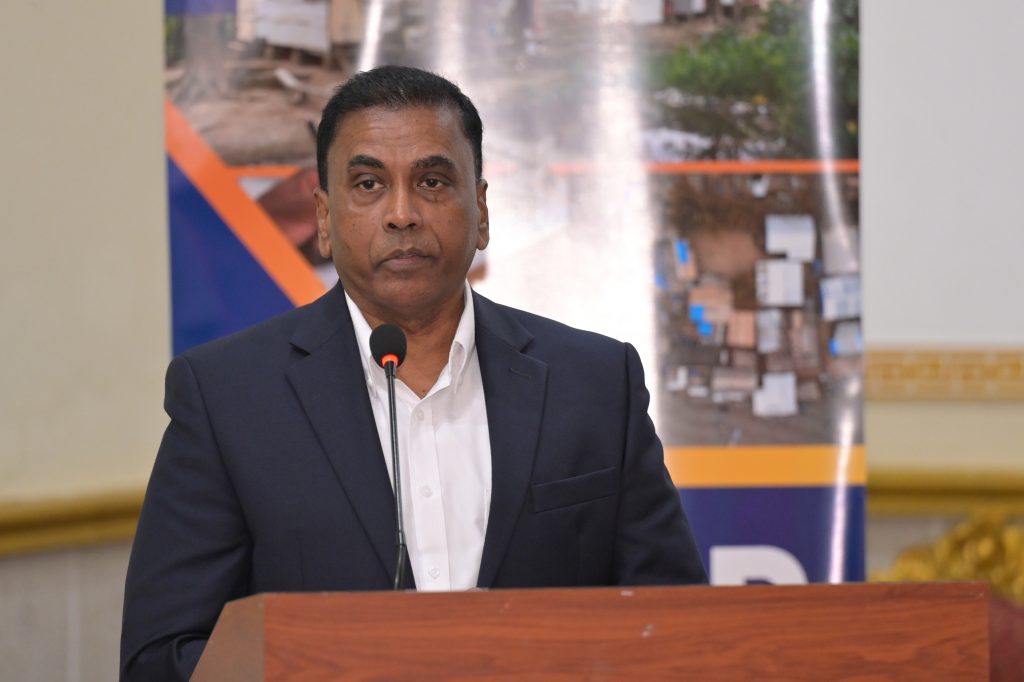
The Minister further emphasized the government’s commitment to providing dignified housing developments for Guyanese citizens, with 92 per cent of allocations going to low, moderate, and middle-income individuals over the past three years. Regularisation has also been done in several settlements during the three-year period, and 220 households have relocated to more wholesome communities.
Mr. Kuppen, the Permanent Secretary, also pointed out that the development of the GSISUP strategy, for which consultations began in 2021, aligns with the government’s commitment to improving the lives of vulnerable individuals and contributes to achieving Sustainable Development Goal 11:1: to ensure access for all to adequate, safe and affordable housing and basic services and upgrade slums by 2030.
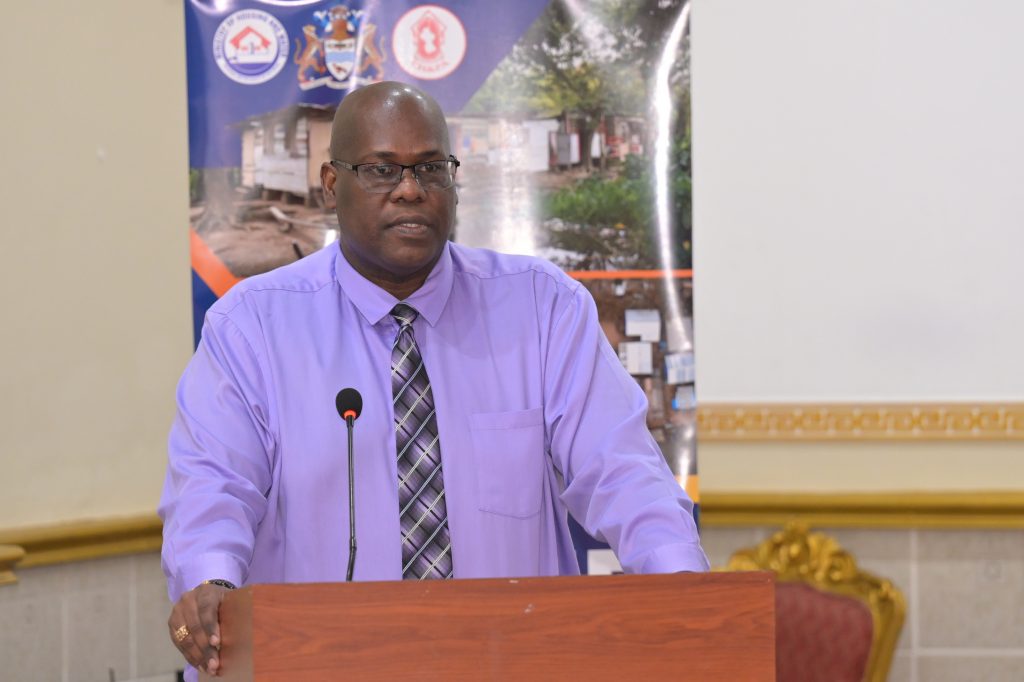
Meanwhile, the CEO highlighted the prevalence of informal settlements in the country. Based on 2015 statistics, over 27,570 households were documented as residing on state lands in 231 settlements, constituting 15 per cent of the population. Some 174 of these settlements were identified for regularisation, while those in zero-tolerance zones will be relocated. The Central Housing and Planning Authority’s work from 1990 to 2023 has so far seen regularisation efforts in 164 out of 174 settlements, benefiting 21,027 households, the CEO said.
GSISUP outlines 50 actions to be implemented over a ten-year period to combat and prevent squatting. The Ministry aims to have the strategy confirmed by early 2024, demonstrating a proactive approach to addressing this critical issue.
